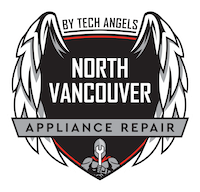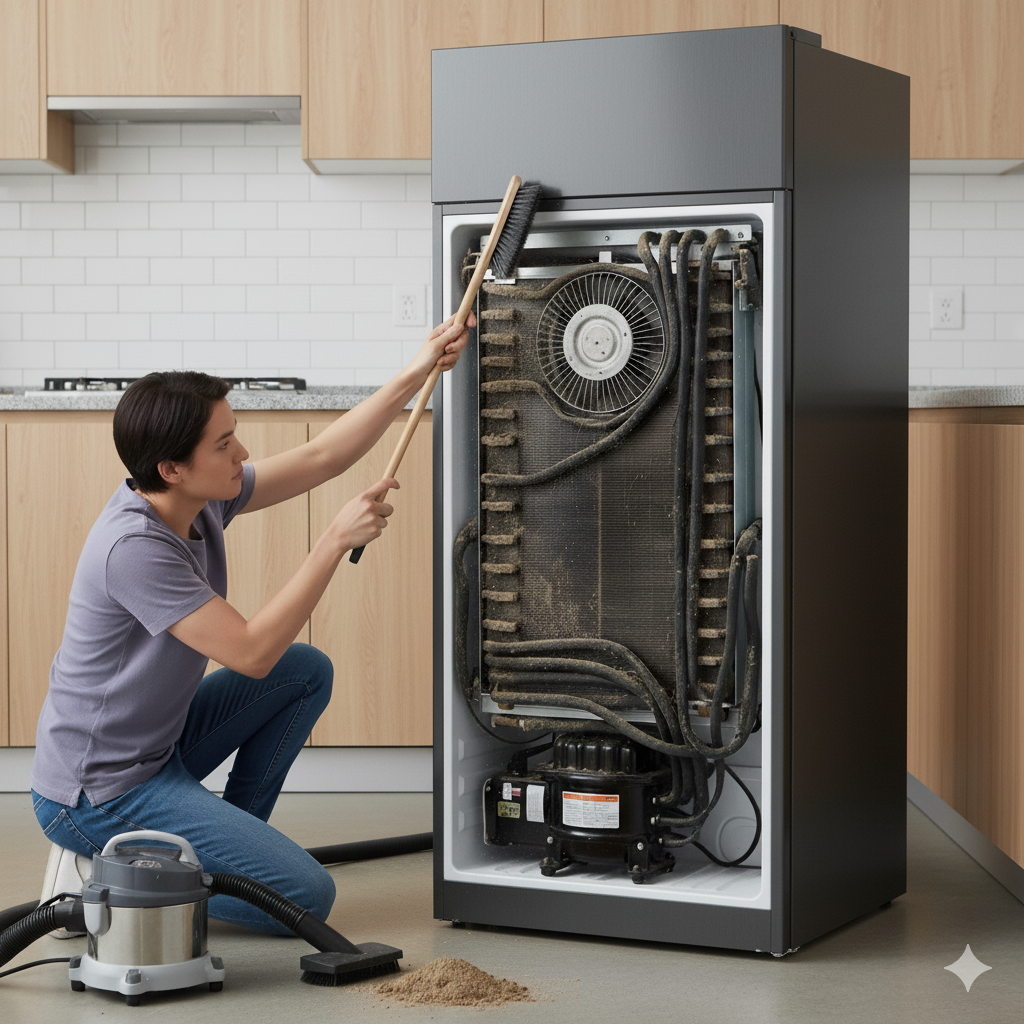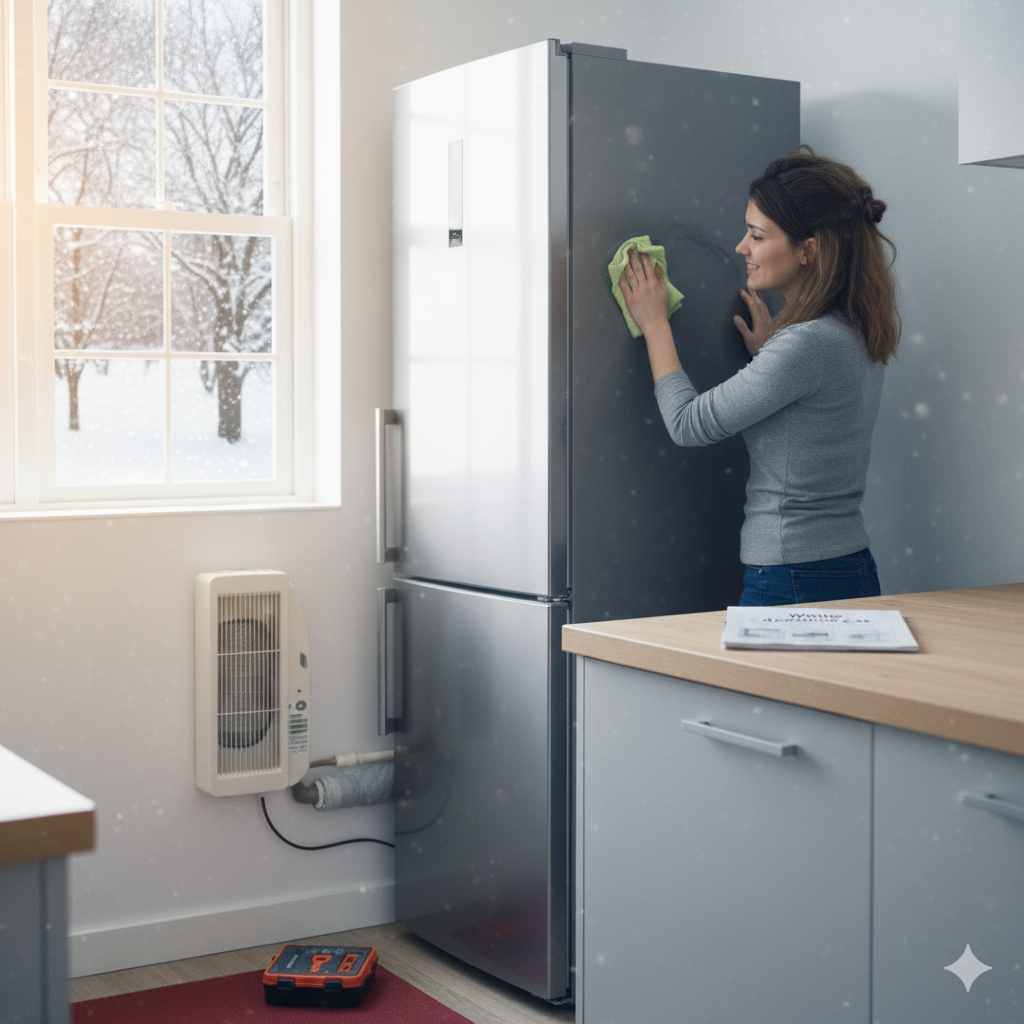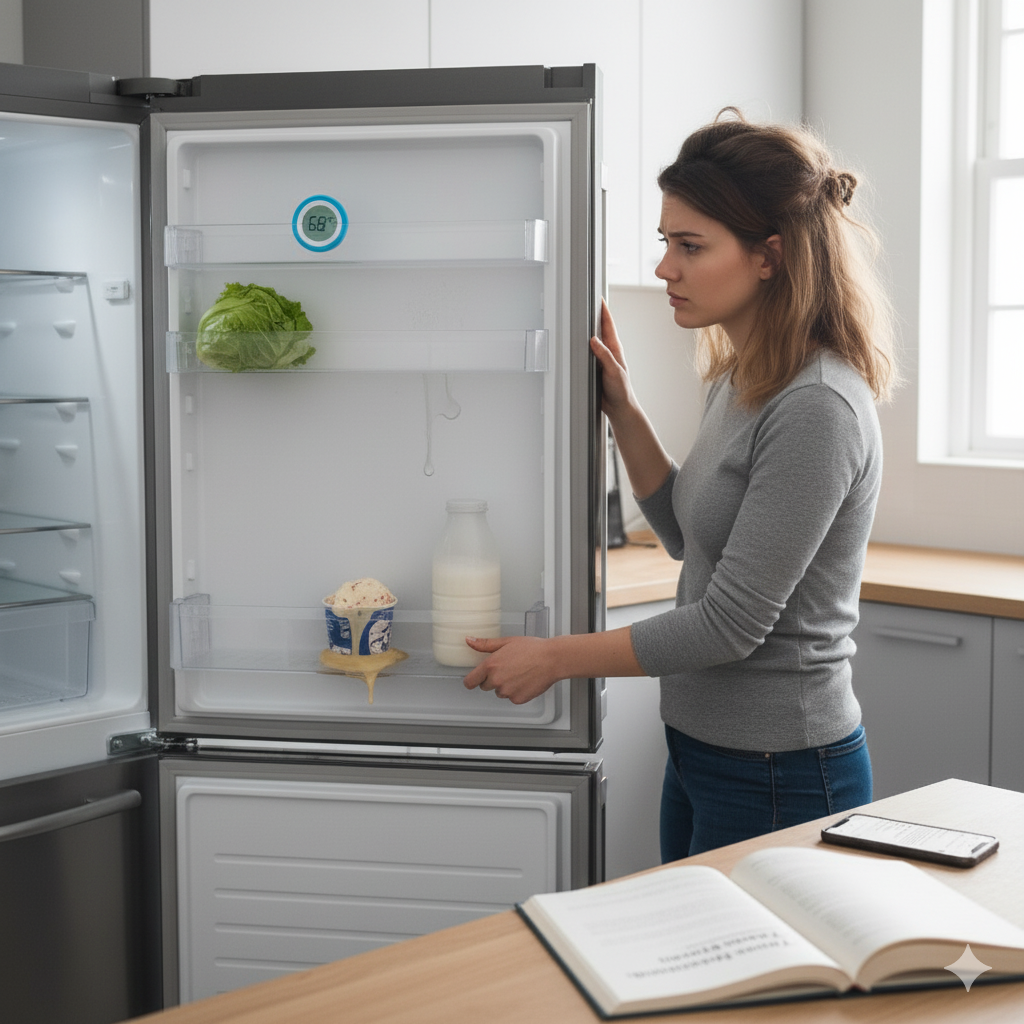Why Isn't My Dishwasher Cleaning Well? Tips for Troubleshooting
Dishwashers are a cornerstone of modern kitchen convenience, saving time and effort for busy households in North Vancouver and beyond. But when your dishwasher starts leaving dishes streaked, spotty, or downright dirty, it can be frustrating. If your dishwasher isn’t cleaning properly, don’t despair! Many common issues can be resolved with simple troubleshooting steps. In this comprehensive guide, we’ll explore the reasons why your dishwasher may not be performing at its best and provide practical tips to get it back in top shape. Whether you’re dealing with cloudy glassware, food residue, or greasy plates, we’ve got you covered.
Understanding How Dishwashers Work
Before diving into troubleshooting, it’s helpful to understand the basics of how a dishwasher operates. Dishwashers clean dishes through a combination of water, detergent, heat, and mechanical action. Water is heated and mixed with detergent, then sprayed through rotating arms onto dishes. The dirty water is drained, and the cycle repeats with fresh water for rinsing. A final drying phase uses heat or air to dry the dishes.
When any part of this process—water flow, detergent action, or mechanical function—malfunctions, your dishes may not come out clean. Let’s explore the most common reasons for poor dishwasher performance and how to address them.
Common Reasons Your Dishwasher Isn’t Cleaning Properly
1. Improper Loading of Dishes
One of the most frequent culprits behind poor dishwasher performance is improper loading. Overloading or incorrectly arranging dishes can block water jets, preventing proper cleaning.
Troubleshooting Tips:
- Avoid Overcrowding: Ensure there’s enough space between dishes for water and detergent to reach all surfaces. Overloading can cause dishes to nest together, blocking spray arms.
- Position Dishes Correctly: Place items like bowls and cups upside down so water can reach the interior. Flat items like plates should face the center of the dishwasher where the spray is strongest.
- Check Spray Arm Clearance: Ensure tall items on the bottom rack don’t block the spray arms. Spin the arms manually to confirm they rotate freely.
2. Clogged Spray Arms
The spray arms are critical for distributing water and detergent. If their nozzles are clogged with food debris, limescale, or grease, water won’t reach all areas of the dishwasher.
Troubleshooting Tips:
- Inspect and Clean Spray Arms: Remove the spray arms (consult your dishwasher’s manual for instructions) and check for clogs. Use a toothpick or small brush to clear debris from the nozzles.
- Soak in Vinegar: If limescale or grease is present, soak the spray arms in white vinegar for 15–20 minutes, then scrub gently and rinse.
- Check Water Pressure: Low water pressure can reduce spray arm effectiveness. Ensure your home’s water pressure is adequate (typically 20–120 PSI for dishwashers).
3. Insufficient or Incorrect Detergent
Using too little, too much, or the wrong type of detergent can lead to poor cleaning results. North Vancouver’s water quality, which can vary, may also affect detergent performance.
Troubleshooting Tips:
- Use the Right Detergent: Always use dishwasher-specific detergent. Hand-washing soap creates too much foam and can damage the machine.
- Measure Detergent Properly: Follow the manufacturer’s guidelines for detergent quantity. Too little won’t clean effectively, while too much can leave residue.
- Consider Water Hardness: North Vancouver has moderately hard water in some areas, which can reduce detergent effectiveness. Consider using a rinse aid or a detergent formulated for hard water.
4. Hard Water Buildup
Hard water, common in parts of British Columbia, contains minerals like calcium and magnesium that can leave white, chalky deposits on dishes and inside the dishwasher.
Troubleshooting Tips:
- Run a Cleaning Cycle: Use a dishwasher-safe cleaning agent like citric acid or a commercial dishwasher cleaner to remove limescale buildup. Run an empty cycle with the cleaner.
- Install a Water Softener: If hard water is a persistent issue, consider a water softener for your home to reduce mineral content.
- Use Rinse Aid: A rinse aid helps water sheet off dishes, reducing spots and improving drying.
5. Blocked or Dirty Filters
Most dishwashers have filters that trap food particles to prevent clogs. If the filter is dirty, water recirculation can become contaminated, leaving residue on dishes.
Troubleshooting Tips:
- Clean the Filter Regularly: Check your dishwasher’s manual to locate the filter (usually at the bottom of the tub). Remove and rinse it under warm water every 1–2 months.
- Scrape Dishes Before Loading: While modern dishwashers don’t require pre-rinsing, scraping off large food particles prevents filter clogs.
- Inspect the Drain: Ensure the drain at the bottom of the dishwasher is clear of debris.
6. Low Water Temperature
Dishwashers rely on hot water to dissolve detergent, break down grease, and sanitize dishes. If the water isn’t hot enough, cleaning performance suffers.
Troubleshooting Tips:
- Check Water Heater Settings: Ensure your home’s water heater is set to at least 120°F (49°C), as most dishwashers require this temperature for optimal cleaning.
- Run the Kitchen Faucet First: Before starting the dishwasher, run hot water at the kitchen sink to ensure hot water reaches the appliance immediately.
- Inspect the Heating Element: If your dishwasher has a heating element, check for signs of damage or malfunction. A faulty element may require professional repair.
7. Faulty or Worn-Out Components
Mechanical issues, such as a failing pump, motor, or water inlet valve, can reduce water flow or pressure, leading to poor cleaning.
Troubleshooting Tips:
- Listen for Unusual Noises: Grinding or humming sounds may indicate a problem with the pump or motor. If you hear these, contact a professional technician.
- Check Water Inlet Valve: If the dishwasher isn’t filling properly, the inlet valve may be clogged or faulty. This typically requires professional diagnosis.
- Schedule Regular Maintenance: Regular servicing by a qualified technician can catch issues early. For North Vancouver residents, contact a local appliance repair service like those offered at https://northvancouverappliances.ca.
8. Incorrect Cycle Selection
Choosing the wrong wash cycle for your load can result in subpar cleaning. For example, a light cycle may not be sufficient for heavily soiled pots and pans.
Troubleshooting Tips:
- Match Cycle to Load: Use a heavy or pots-and-pans cycle for greasy or heavily soiled items. Save eco or quick cycles for lightly soiled dishes.
- Use the Sanitize Option: If available, the sanitize cycle uses higher temperatures to kill bacteria and improve cleaning.
- Review Your Manual: Check your dishwasher’s manual for cycle descriptions to ensure you’re using the right settings.
9. Old or Worn-Out Dishwasher
If your dishwasher is over 10 years old, it may no longer clean as effectively due to wear and tear or outdated technology.
Troubleshooting Tips:
- Evaluate Performance: If troubleshooting doesn’t improve results, it may be time to replace your dishwasher. Newer models are more energy-efficient and better equipped to handle modern detergents and water conditions.
- Consult a Professional: A technician can assess whether repair or replacement is the better option. Visit https://northvancouverappliances.ca for expert advice and repair services in North Vancouver.
Step-by-Step Troubleshooting Guide
If you’re ready to tackle your dishwasher’s issues, follow this step-by-step guide to diagnose and fix the problem:
- Inspect the Load: Ensure dishes are loaded correctly with no overcrowding or obstructions. Spin the spray arms to confirm they move freely.
- Clean the Spray Arms: Remove and clean the spray arms to clear any clogs. Soak in vinegar if needed.
- Check the Filter: Remove and rinse the filter thoroughly. Ensure the drain is clear.
- Verify Detergent Use: Confirm you’re using the right amount and type of dishwasher detergent. Add rinse aid if necessary.
- Test Water Temperature: Run hot water at the sink before starting the dishwasher. Check your water heater’s settings.
- Run a Cleaning Cycle: Use a dishwasher cleaner to remove limescale, grease, and odors.
- Select the Right Cycle: Choose a cycle appropriate for the load’s soil level.
- Listen for Issues: Note any unusual noises or performance issues that may indicate a mechanical problem.
- Call a Professional: If problems persist, contact a trusted appliance repair service like https://northvancouverappliances.ca for expert diagnosis and repair.
Preventative Maintenance Tips
To keep your dishwasher running smoothly and avoid future cleaning issues, adopt these maintenance habits:
- Clean Regularly: Run a cleaning cycle with a dishwasher cleaner every 1–2 months.
- Scrape, Don’t Rinse: Scrape food off dishes to prevent filter clogs, but avoid pre-rinsing to save water and maintain detergent effectiveness.
- Use Rinse Aid: Always use a rinse aid to improve drying and reduce spots, especially in North Vancouver’s hard water areas.
- Inspect Components: Check spray arms, filters, and the drain regularly for debris or damage.
- Schedule Professional Maintenance: Annual check-ups by a technician can extend your dishwasher’s lifespan.
When to Call a Professional
While many dishwasher issues can be resolved with DIY troubleshooting, some problems require professional expertise. Call a technician if you notice:
- Persistent poor cleaning despite troubleshooting.
- Unusual noises like grinding or rattling.
- Water not filling or draining properly.
- Error codes on the dishwasher’s display.
- Suspected issues with the heating element, pump, or motor.
For North Vancouver residents, we offer reliable repair services with experienced technicians who can efficiently diagnose and fix your dishwasher.
Choosing a New Dishwasher
If your dishwasher is beyond repair, it may be time to invest in a new model. Here are some tips for choosing a dishwasher that suits your needs:
- Energy Efficiency: Look for Energy Star-certified models to save on water and electricity bills.
- Capacity: Choose a size that fits your household’s needs, from compact models for small kitchens to larger units for families.
- Features: Consider features like adjustable racks, third racks for utensils, and specialized cycles for pots or delicate glassware.
- Noise Level: Check the decibel rating for quieter operation, especially in open-concept homes.
- Brand Reliability: Research brands known for durability and performance.
Conclusion
A dishwasher that doesn’t clean properly can disrupt your daily routine, but most issues are fixable with simple troubleshooting steps. By checking for common problems like improper loading, clogged spray arms, hard water buildup, or incorrect detergent use, you can often restore your dishwasher’s performance. Regular maintenance and proper usage habits will keep your dishwasher running smoothly for years to come.
For North Vancouver residents, https://northvancouverappliances.ca is your go-to resource for appliance repair and replacement. Whether you need expert troubleshooting or are considering a new dishwasher, their team is ready to help. Don’t let a dirty dishwasher get you down—take action today and enjoy sparkling clean dishes once again!











